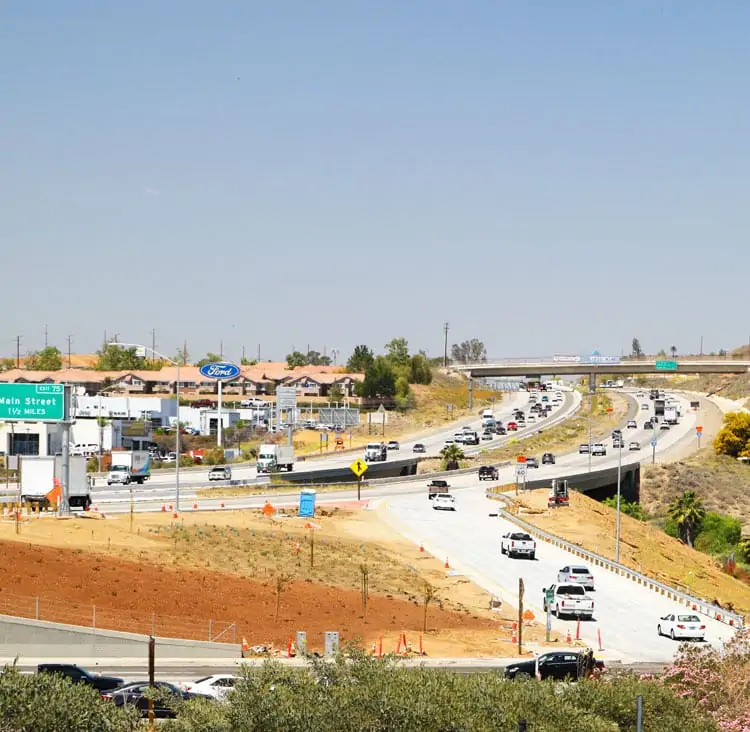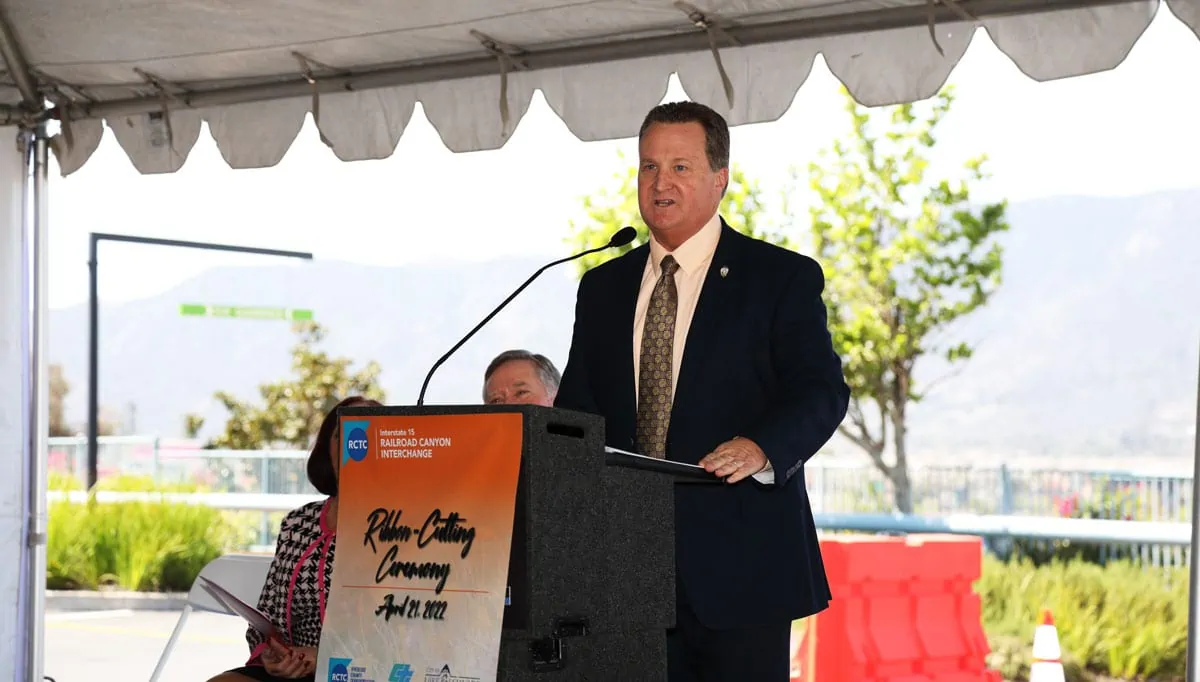The Point: Project improves safety, traffic flow, and access for Lake Elsinore and Canyon Lake motorists
Officials from RCTC, the City of Lake Elsinore, and Caltrans celebrated the opening of the newly constructed Interstate 15 Railroad Canyon Road Interchange in Lake Elsinore on April 21.
Opening months ahead of schedule and within budget, the final on-ramp opened on April 15, thanks to strong teamwork among the project partners and mainly good weather following the start of construction in May 2020.
The $41 million project employed more than 200 essential workers and contributed to Riverside County’s economy, said Representative Ken Calvert, who spoke at the event.
“The new interchange will provide safer access to Interstate 15 for Lake Elsinore and its neighboring communities,” Calvert said.

RCTC First Vice Chair and Lake Elsinore Councilmember Bob Magee explained that the new interchange will help Lake Elsinore residents and community members to the east in Canyon Lake, who use Railroad Canyon Road to reach I-15. He praised the team, including Lake Elsinore City Engineer Remon Habib, for completing the project design after many years and for expediting the construction phase.

“Congratulations to RCTC, Caltrans, the City of Lake Elsinore, and the entire construction team for getting this project to the finish line,” Magee said.
The project added auxiliary lanes to I-15 to help drivers merge on and off the highway and reduce traffic bottlenecks. It also removed a traffic signal that was no longer needed, improved coordination between signals, added a second on-ramp to give drivers another option to enter northbound I-15, and built new sidewalks and bike lanes to enhance walkability.
Riverside County Supervisor Karen Spiegel noted the collaboration needed to secure the project funding, which includes state and city sources, plus funds from the Western Riverside Council of Governments’ Transportation Uniform Mitigation Fee program or TUMF. The TUMF program requires new development to pay its fair share for the increased traffic it creates. For the interchange, $29 million in TUMF was used to match $15 million that RCTC secured in state gasoline tax competitive grant funds.
“The project was all about teamwork,” Spiegel said. “From the funding to the construction, the team truly pulled together to make this project a success.”
Final work will continue through the spring. To receive updates about this remaining work, text “RAILROAD” to 77222 or follow @railroadcanyon on Facebook, Twitter, and Instagram.
